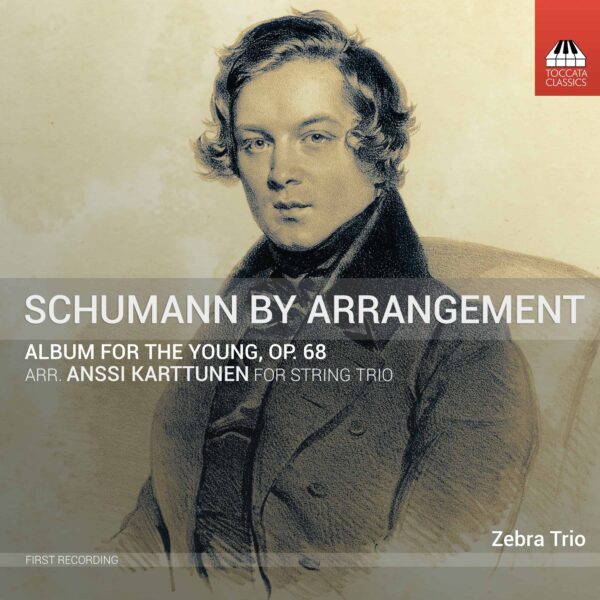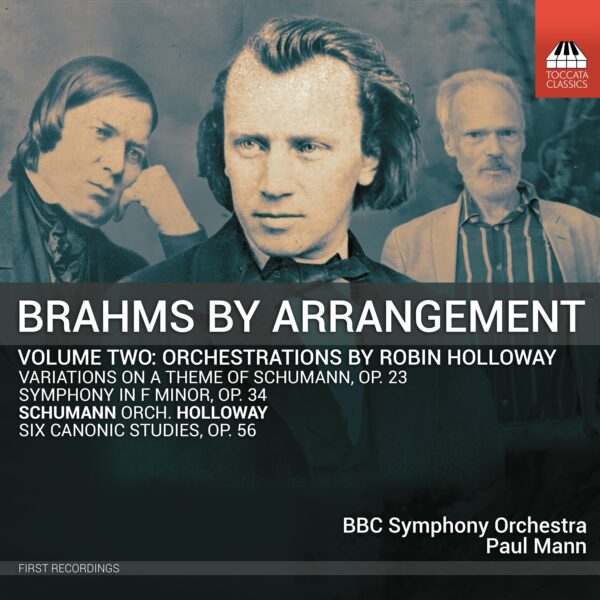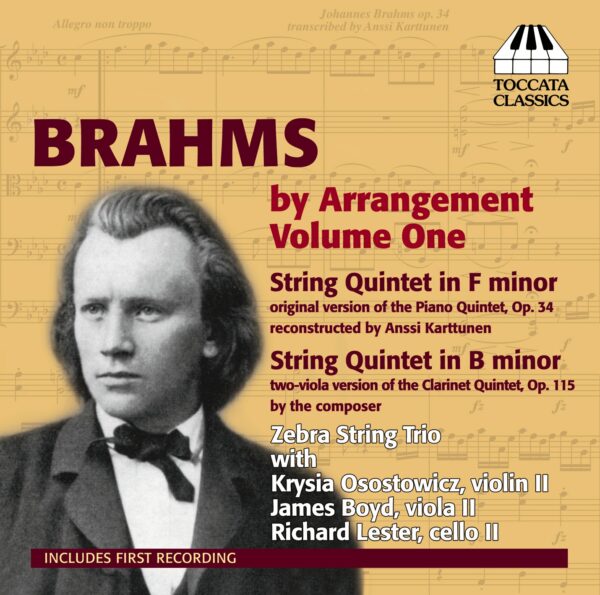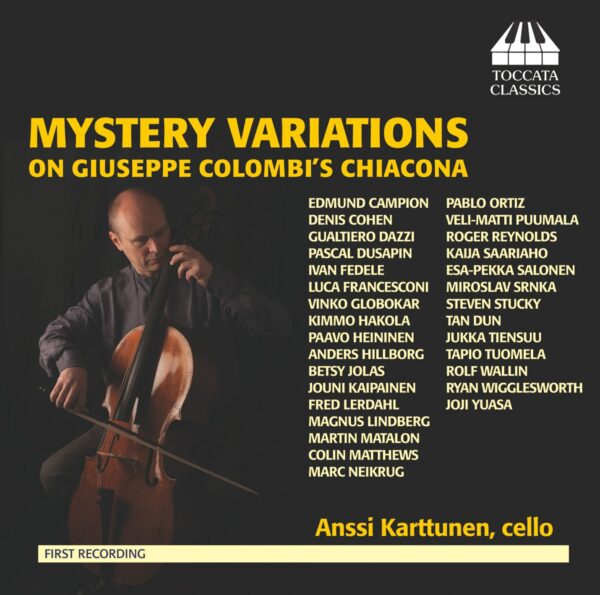Schumann by Arrangement
Album for the Young, Op. 68. transcr. string trio by Anssi Karttunen
Schumann’s ‘Album fur das Jugend,’ Op. 68, of 1848 appears to be a collection of simple teaching pieces for children. But its unassuming exterior hides a wealth of interconnected references: to Bach and to William Blake (whose ‘Songs of Innocence and Experience’ it shadows), and to the life of the Romantic artist as reflected in nature and the passage of the seasons. Anssi Karttunen’s transcription for string trio brings a textural subtlety that enhances the unsuspected layers of meaning in Schumann’s modest miniatures. The Zebra Trio consists of the Austrian violinist Ernst Kovacic, Canadian violist Steven Dann and Finnish cellist Anssi Karttunen, each bringing a vast experience in chamber music, in different styles and in working with living composers to the world of the string trio. The Zebra Trio has always mixed familiar masterpieces with new works and transcriptions, combining all of these in creative ways in their concerts.
Zebra Trio
Listen To This Recording:
-
Part I: Für Kleinere (For Children)
- No. 1 Melodie
- No. 2 Soldatenmarsch (Soldiers March)
- No. 3 Trällerliedchen (Humming Song)
- No. 4 Ein Choral
- No. 5 Stückchen (Little Piece)
- No. 6 Armes Waisenkind (Poor Orphan Child’)
- No. 7 Jägerliedchen (Little Hunting Song)
- No. 8 Wilder Reiter (Wild Rider)
- No. 9 Volksliedchen (Folksong)
- No. 10 Fröhlicher Landmann, von der Arbeit zurückkehrend (Happy Farmer, returning from Work)
- No. 11 Sizilianisch (Siciliana)
- No. 12 Knecht Ruprecht (Servant Rupert)
- No. 13 Mai, lieber Mai (May, sweet May)
- No. 14 Kleine Studie (Little Study)
- No. 15 Frühlingsgesang (Spring Song)
- No. 16 Erster Verlust (First Loss)
- No. 17 Kleiner Morgenwanderer (Little Morning Wanderer)
- No. 18 Schnitterliedchen (The Reapers Song)
- No. 19 Kleine Romanze (Little Romance)
- No. 20 Ländliches Lied (Rustic Song)
- No. 21 * * *
- No. 22 Rundgesang (Roundelay)
- No. 23 Reiterstück (The Horseman)
- No. 24 Ernteliedchen (Harvest Song)
- No. 25 Nachklänge aus dem Theater (Echoes from the Theatre)
- No. 26 * * *
- No. 27 Kanonisches Liedchen (Little Song in Canon)
- No. 28 Erinnerung (4. November 1847) (Remembrance (4 November 1847)
- No. 29 Fremder Mann (The Stranger)
- No. 30 * * *
- No. 31 Kriegslied (Song of War)
- No. 32 Sheherazade
- No. 33 Weinlesezeit fröhliche Zeit! (Harvesting the Grapes Happy Time!)
- No. 34 Thema (Theme)
- No. 35 Mignon
- No. 36 Lied italienischer Marinari (Italian Mariners Song)
- No. 37 Matrosenlied (Sailors Song)
- No. 38 Winterszeit I (Wintertime I)
- No. 39 Winterszeit II (Wintertime II)
- No. 40 Kleine Fuge (Little Fugue)
- No. 41 Nordisches Lied (Gruß an G.) (Northern Song (Greetings to G.)
- No. 42 Figurierter Choral (Figured Chorale)
- No. 43 Sylvesterlied (New Years Song)
Part II: Für Erwachsenere (For Adults)
FIRST RECORDINGS





MusicWeb International :
‘As a transcription, I do feel that this arrangement does work well, and that whilst it is faithful to the original, with the greater musical colour and depth you also get from the strings a new sharper emphasis to the music. […]
The performance is excellent throughout, as you would imagine with an arrangement for a specific ensemble, the strengths of the individual members are exploited, which each sharing the limelight at times. This is a well-balanced transcription, something that clearly comes through in the clear and sympathetic recording.’
—Stuart Sillitoe, MusicWeb International